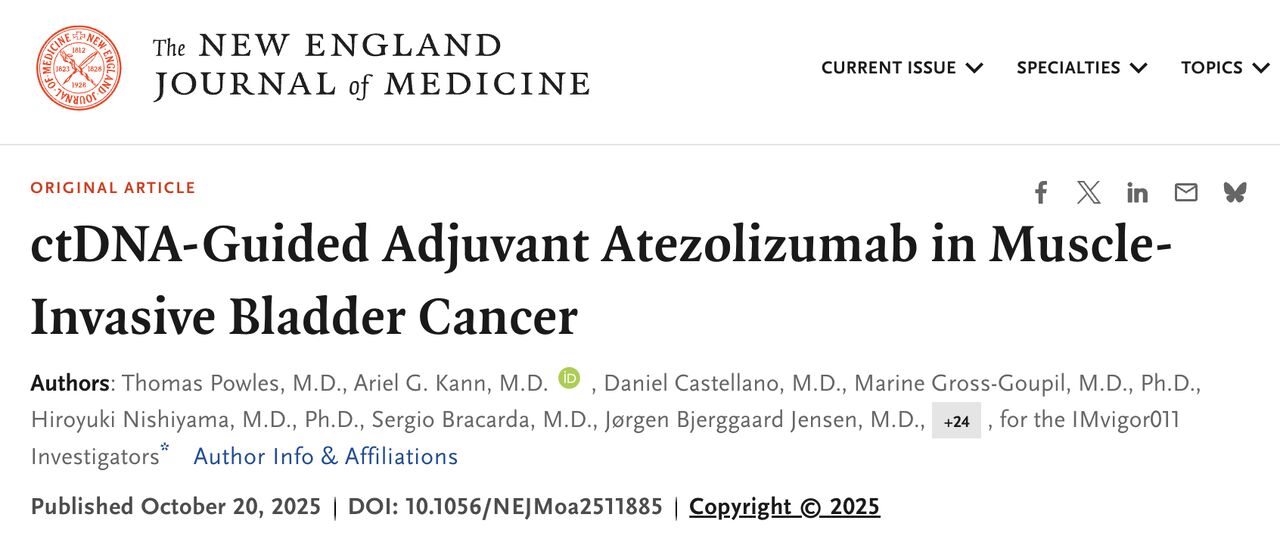Douglas Flora, Executive Medical Director of Yung Family Cancer Center at St. Elizabeth Healthcare, President-Elect of the Association of Cancer Care Centers, and Editor in Chief of AI in Precision Oncology, shared a post by Alex Dickinson, Board Member of FemtoVox Incorporated on LinkedIn:
“The MRD Revolution Accelerates: Practice-Changing NEJM Data.
Another month, another compelling MRD study. This time, practice-changing results published in NEJM. This IS the year of MRD. We’re watching something remarkable unfold: the data grows stronger with each passing month, across nearly every tumor type, from multiple platforms. The signal is unmistakable. A few years ago, MRD testing was primarily a research tool.
Today, we’re seeing Level 1 evidence driving clinical decision-making in real time. And here’s what excites me most: it’s not hard to imagine a near future where we’re “treating on molecular progression” (TOMP) in solid tumors-just like we’ve done successfully in hematologic malignancies for years. The technology is maturing. The clinical validation is mounting. The treatment landscape is evolving to give us options when we detect disease early. We’re moving from asking “Does MRD work?” to “How do we implement this responsibly across our patient populations?”
The convergence is happening. AI-enabled early detection. Highly sensitive molecular monitoring. Increasingly effective targeted and immune therapies. Together, they’re rewriting what’s possible in precision oncology. This is why we stay in this fight. Not just to treat cancer better-but to catch it earlier, monitor it smarter, and intervene before symptoms appear. The future of cancer care is molecular. And it’s arriving faster than most people realize.
Thanks for sharing, Alex Dickinson!”
Quoting Alex Dickinson’s post:
“Incredible Natera Signatera MRD clinical trial result. NEJM paper written by independent authors at 30 medical institutions in 24 countries. Highlights:
(1) Patients treated when they got an MRD-positive DOUBLED THEIR TIME to recurrence from 5 months to 10 months.
(2) Even more importantly, overall survival improved from 21 months to 33 months, a 41 PERCENT REDUCTION IN THE RISK OF DEATH.
(3) Patients who stayed MRD-negative had extremely low recurrence rates: over 95 percent clear at one year and 88 clear percent at two years. This shows that MRD lets the majority of patients AVOID UNNECESSARY TREATMENT.”

More posts featuring Douglas Flora and Alex Dickinson on OncoDaily.


